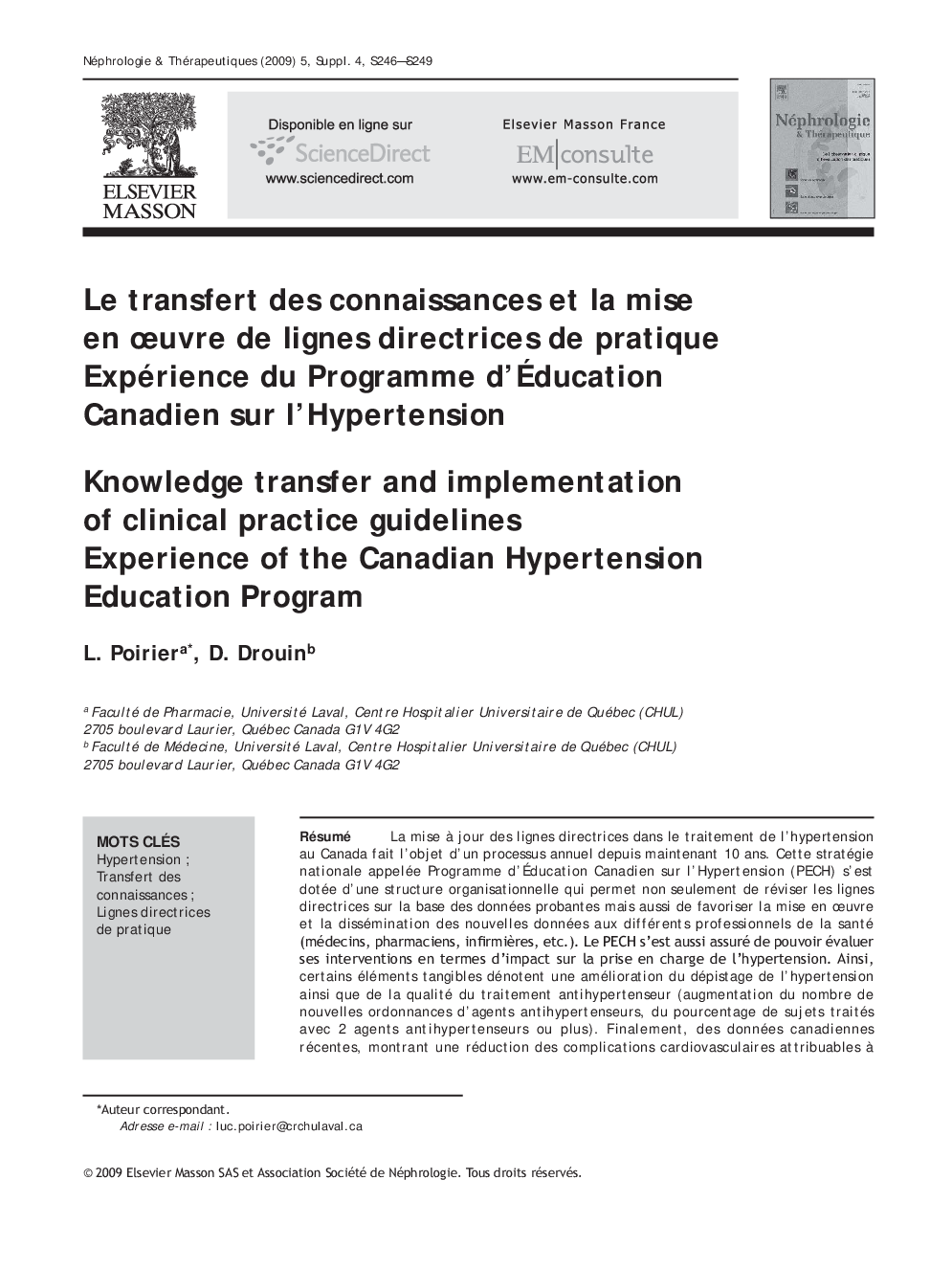| کد مقاله | کد نشریه | سال انتشار | مقاله انگلیسی | نسخه تمام متن |
|---|---|---|---|---|
| 3895646 | 1250176 | 2009 | 4 صفحه PDF | دانلود رایگان |

RésuméLa mise à jour des lignes directrices dans le traitement de l’hypertension au Canada fait l’objet d’un processus annuel depuis maintenant 10 ans. Cette stratégie nationale appelée Programme d’Éducation Canadien sur l’Hypertension (PECH) s’est dotée d’une structure organisationnelle qui permet non seulement de réviser les lignes directrices sur la base des données probantes mais aussi de favoriser la mise en œuvre et la dissémination des nouvelles données aux différents professionnels de la santé (médecins, pharmaciens, infirmières, etc.). Le PECH s’est aussi assuré de pouvoir évaluer ses interventions en termes d’impact sur la prise en charge de l’hypertension. Ainsi, certains éléments tangibles dénotent une amélioration du dépistage de l’hypertension ainsi que de la qualité du traitement antihypertenseur (augmentation du nombre de nouvelles ordonnances d’agents antihypertenseurs, du pourcentage de sujets traités avec 2 agents antihypertenseurs ou plus). Finalement, des données canadiennes récentes, montrant une réduction des complications cardiovasculaires attribuables à l’hypertension, suggèrent un possible lien de causalité avec la mise en place du PECH. Cet article décrira donc dans les prochaines lignes le fonctionnement du PECH avec ses différentes stratégies visant une meilleure prise en charge de l’hypertension au Canada.
For the last 10 years, the update of guidelines for the treatment of hypertension in Canada is part of an annual process. This national strategy called the Canadian Hypertension Education Program (CHEP) has an organizational structure which allows not only to revise guidelines using an evidence-based scientific process but also to facilitate the implementation and the dissemination of the recommendations to the various healthcare professionals (doctors, pharmacists, nurses, etc.). As part of this process, the CHEP is also measuring different outcomes which could estimate the impact of its interventions. Recent data clearly show an improvement of the screening of hypertension as well as the quality of antihypertensive treatment (increase in the number of new prescriptions and of the percentage of subjects treated with 2 antihypertensive agents or more) in Canada. Finally, recent Canadian data showing a reduction of the cardiovascular complications attributable to hypertension suggest a possible link of causality with the implementation of the CHEP. This article will describe the functioning of the CHEP with its various strategies aiming at a better management of hypertension in Canada.
Journal: Néphrologie & Thérapeutique - Volume 5, Supplement 4, June 2009, Pages S246-S249